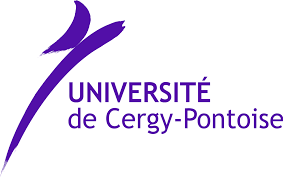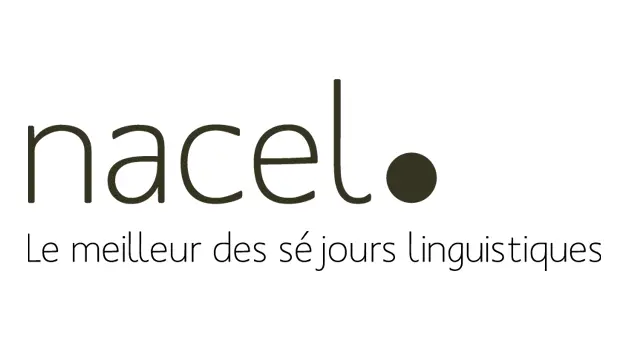
The essential rules of Russian grammar explained simply
 Learn now
Learn now
Summary
of the page
>
Understanding Russian grammar
>
Russian grammatical categories
>
Russian sentence structure
>
Russian grammatical cases
>
Russian conjugation
>
Learn Russian grammar with the Serious game
>
Conclusion: On the road to mastering Russian grammar
Vous avez toujours voulu apprendre la grammaire russe, mais vous ne savez pas par où commencer ? Ne vous inquiétez pas, vous êtes au bon endroit ! Dans cet article, nous allons vous présenter les règles essentielles du russe de manière simple et accessible. Que vous soyez débutant ou que vous souhaitiez simplement rafraîchir vos connaissances, notre contenu informatif vous donnera les bases nécessaires pour progresser dans learning Russian . So, are you ready to embark on this linguistic adventure? Let's discover the secrets of Russian grammar together!
Understanding Russian grammar
Introduction to Russian grammar
Although Russian grammar may seem intimidating at first, it has a logical structure which, once understood, can open the door to a new linguistic universe. Russian grammar characterised by a complex system of declensions, flexibility in word order and the use of prefixes and suffixes to express different tenses and verbal aspects. A solid understanding of Russian grammar is essential to mastering the language, as it allows you to understand how words come together to form meaningful sentences. In this section, we will introduce you to the basics of Russian grammar, starting with an overview of how it works. So dive in with us into the fascinating world of Russian grammar.
The basics of Russian grammar
Russian grammar has a number of distinctive features. Firstly, Russian words are declined, which means that their form changes according to their role in the
sentence. For example, the word "cat" may become "cat's" depending on its grammatical role. Secondly, word order in Russian is quite flexible. This means that you can often change the order of words in a sentence without
of words in a sentence without changing the meaning.
Finally, Russian uses a system of aspect verbs to express whether an action is completed or not. These basics will give you a good starting point for understanding how Russian grammar works.
However, it's important to remember that the best way to learn is to practise regularly. So pay particular attention to these basics while exposing yourself to the Russian language on a daily basis.
Russian grammatical categories
Names in Russian
Nouns in Russian are an essential part of grammar. They can be masculine, feminine or neuter, and their gender can often be determined by their ending. For example, most nouns ending in most nouns ending in "a" or "ya" are feminine, while most nouns ending in a consonant are masculine. Russian nouns are also divided into six cases: nominative, genitive, masculine and feminine. cases: nominative, genitive, dative, accusative, instrumental and prepositional. Each case has its own specific endings and is used in specific situations. For example, the genitive case is often used to indicate possession. A good understanding of nouns and their declensions is essential for mastering Russian grammar.
Russian Verbs
Russian verbs are another key element of the grammar. They are conjugated according to tense, aspect, mood, voice, person and number. In Russian, there are two aspects imperfective. The perfectitive is used to indicate a completed action, while the imperfective is used to indicate an action that is in progress, habitual or repeated. From Moreover, each Russian verb is conjugated differently for each person, in the present, past and future tenses. For example, for the verb "to speak", the present first person singular form is "govoryu", while the past tense is "govoril" for a man and "govorila" for a woman. Mastering Russian verbs takes practice, but over time you'll start to see patterns and understand how they work. understand how they work.
Russian Adjectives
In Russian, adjectives play a crucial role in describing nouns. Like nouns, they are broken down into gender, number and case. An adjective must agree in gender, number and case with the noun it qualifies. case with the noun it qualifies. For example, if a noun is feminine, singular and in the nominative case, the adjective that qualifies it must also be feminine, singular and in the nominative case. In addition, Russian adjectives have a short form that is often used to describe a temporary state. For example, "ya ustal" means "I'm tired", using the short form of the adjective "tired". Understanding how adjectives work in Russian will help you express your thoughts and feelings more accurately.
Russian Prepositions
Prepositions in Russian are used to indicate relationships between words in a sentence. They can indicate concepts such as direction, place, time, cause and means. For example, the preposition "v" means "in" or "at", and is used to indicate place. Russian prepositions require the use of specific cases. For example, the preposition "v" requires the use of the prepositional case. It is important to note that some prepositions can be used with more than one case, and the meaning of the preposition can change depending on the case used. For example, For example, the preposition "na" with the accusative case means "towards", whereas with the prepositional case it means "on". Learning Russian prepositions and how to use them correctly in conjunction with the cases is an essential aspect of mastering Russian grammar.
Russian sentence structure
Word order in Russian
The word order in Russian is more flexible than in many other languages. This is due to the case system, which makes it possible to understand the role of a word in a sentence, wherever it is found. in a sentence. However, the most common order is subject-verb-object, as in English. But unlike English, changing the word order in Russian can often change the emphasis or implication of a sentence rather than its overall meaning. For example, putting a word at the beginning of a sentence usually puts the emphasis on that word. It is important to note that although Russian word order is flexible, some word orders are more natural than others. more natural than others. This is an aspect of Russian that becomes more intuitive with practice and exposure to the language.
Subject-object agreement in Russian
In Russian, it is crucial that the subject and object of a sentence are in agreement. This means that the verb in a sentence must match the subject in number and person, and that adjectives must
match the noun they modify in gender, number and case. For example, if the subject of a sentence is plural, then the verb must also be plural.
Similarly, if an adjective describes a masculine noun in the genitive case, the adjective must also be in the masculine and genitive cases. This is an aspect of Russian grammar that can be confusing for beginners,
but with practice it will become more natural. It's important to remember that, although these rules are generally followed, there are always exceptions. The important thing is to keep practising
and expose yourself to the language.
Russian grammatical cases
The nominative case in Russian
The nominative case in Russian is the simplest and most direct case. It is used for the subject of a sentence, i.e. the person or thing doing the action. For example, in the sentence "The cat is sleeping", "The cat" is the subject and is therefore in the nominative case. In Russian, the nominative case is the basic form of the word, the one you will find in the dictionary. It has no specific endings like the other cases. It is the starting point for learning the other cases, as the endings for the other cases are generally added to the nominative form of the word. Although this is the simplest case, it is nevertheless essential to as it forms the basis of Russian declension.
The accusative case in Russian
The accusative case in Russian is used for the direct object of a sentence, i.e. the person or thing that receives the action. For example, in the sentence "I see the cat", "the cat" is the direct object and is therefore in the in the accusative case. The endings of words in the accusative case vary according to the gender of the word and its liveliness. For inanimate masculine nouns, the accusative form is the same as the nominative form. For animate and all feminine nouns, the accusative form is generally the same as the genitive form. Understanding the accusative case is a key step in mastering Russian grammar, as it is commonly used in many types of sentence.
The genitive case in Russian
The genitive case in Russian is used to indicate possession or belonging. It usually answers the question "of whom" or "of what". For example, in the sentence "This is Maria's book", "Maria" would be in the genitive case, because she is the owner of the book. genitive case, because she is the owner of the book. The genitive case is also used after certain prepositions and with certain verbs. The endings of words in the genitive case vary according to the gender and number of the word. For example, a masculine singular noun will generally add "-a" or "-ya" to the end of the word. The genitive case is one of the most commonly used cases in Russian, so it's important to master it.
Russian conjugation
Conjugating verbs in the present tense in Russian
The conjugation of verbs in the present tense in Russian depends on two factors: the aspect of the verb (perfective or imperfective) and the person (first, second or third person, singular or plural). Imperfective verbs are imperfective verbs are used for ongoing, habitual or repeated actions, while perfective verbs are used for completed actions. Each person has a specific ending that is added to the verb stem. For example for the imperfective verb "govorit'" (to speak), the first person singular form is "govoryu", the second person form is "govorish'" and so on. It is important to note that some verbs are irregular and do not follow these conjugation rules. As always, the key to mastering the conjugation of verbs in the present tense in Russian is regular practice.
conjugating verbs in the past tense in Russian
Conjugating verbs in the past tense in Russian is much simpler than conjugating verbs in the present tense. In the past tense, Russian verbs are not conjugated according to the person, but rather according to the gender of the subject. There are therefore four possible forms for each verb: one for the masculine, one for the feminine, one for the neuter and one for the plural. For example, for the verb "govorit'" (to speak), the masculine form in the past tense is "govoril", the feminine form is "govorila", the neuter form is "govorilo" and the plural form is "govorili". It is important to note that these endings are added to the stem of the perfective or imperfective verb, depending on whether the action is considered completed or not. considered completed or not.
Conjugating verbs in the future tense in Russian
The conjugation of verbs in the future tense in Russian depends on the aspect of the verb. For imperfective verbs, which denote an unfinished, repeated or ongoing action, the future tense is formed using the auxiliary verb "budu" followed by the infinitive verb. For example, "ya budu govorit'" means "I will speak". For perfective verbs, which indicate a complete action, the future tense is formed by simply conjugating the verb as in the present tense. For example, "ya skazhu" means "I will say". It is important to note that, as always in Russian, there are exceptions and irregularities. However, these rules cover most situations. Mastering future tense conjugation in Russian requires practice and patience, but it is essential for expressing complex thoughts and ideas.
Learn Russian grammar with the Serious game
Presentation of the Serious Game
The Serious Game is an innovative method of learning Russian grammar. It uses the principles of games to make learning more engaging and fun. The Serious Game covers all aspects of Russian grammar, from the basics to more advanced concepts. It offers a variety of interactive exercises, challenges and games to help learners practise and reinforce their knowledge of Russian grammar. The Serious Game is designed for all levels, from beginners to more advanced learners. It offers a personalised approach to learning, allowing each user to progress at their own pace and according to their own needs. The Serious Game is a fun and effective way to learn Russian grammar. It transforms learning into an enjoyable, motivating and enriching gaming experience.
How Serious Games help you learn Russian grammar
The Serious Game helps learners of Russian grammar by making the experience more interactive and engaging. It uses game elements to reinforce grammatical concepts, helping users to retain information more easily. information more easily. For example, it may use puzzles or matching games to help reinforce understanding of Russian grammatical cases. In addition, the Serious Game offers practice exercises that provide immediate immediate feedback, enabling users to correct mistakes on the spot and continually improve their skills. The Serious Game also offers challenges that encourage users to apply what they have learned in new and different contexts. in new and different contexts. Thanks to these features, the Serious Game makes learning Russian grammar more effective, more fun and less intimidating.
Testimonials on the use of Serious Games to learn Russian
Many users of the Serious Game have shared positive testimonials about their experience of learning Russian grammar. Some highlighted how the Serious Game made learning Russian grammar more fun and engaging. They appreciated the variety of games and challenges, which helped to reinforce grammatical concepts in an interactive way. Others mentioned how the Serious Game allowed them to progress at their own pace and see tangible improvements in their Russian grammar skills. Many users also appreciated the instant feedback provided by the Serious Game, which enabled them to quickly correct their mistakes and constantly improve their skills. These testimonials attest to the effectiveness of the Serious Game as a tool for learning Russian grammar.
Conclusion: On the road to mastering Russian grammar
Why mastering Russian grammar is essential
Mastering Russian grammar is essential for several reasons. First, it is the key to understanding and being understood in Russian. Without a good understanding of grammar, it would be difficult to construct correct sentences or fully understand what others are saying. Secondly, Russian grammar is rich and complex, allowing for a wide variety of meanings and nuances to be expressed. It offers great flexibility and precision in expressing thoughts and ideas. Finally, mastery of Russian grammar is a sign of linguistic competence. It demonstrates a commitment and dedication to learning the language, which can be impressive to native speakers and other learners. In short, mastery of Russian grammar is an essential part of learning the Russian language.
Invitation to try the Serious Game to learn Russian grammar
If you're determined to master Russian grammar, why not try the Serious Game? As we have seen, it offers an innovative and interactive approach to learning Russian grammar. Whether you're a complete beginner or just looking to refresh your knowledge, the Serious Game is designed to help you progress at your own pace and in a fun way. It offers a variety of exercises, games and challenges to reinforce your understanding of Russian grammar and improve your language skills. of Russian grammar and improve your language skills. What's more, with instant feedback, you'll be able to quickly identify and correct your mistakes, helping you to learn more effectively. So why wait? Try the Serious Game today and take the first step towards mastering Russian grammar!
Your questions
on learning Russian
Is it hard to learn Russian?
Where is Russian spoken in the world?
How can I speak Russian quickly?
How can I learn Russian on my own?
How do you say hello in Russian?
- Доброе утро (dobroye utro) : Good morning
- Добрый день (dobriy den) : Good afternoon
- Добрый вечер (dobriy vyecher) : Good evening
- Здравствуйте (zdravstvuyte) : Hello
What is the best way to learn Russian?
Language Club
The blog that tells you everything about languages


Language Club
The blog that tells you everything about languages


All languages to learn
Certification preparation courses available

Toeic
They learned a new language with Globe Speaker





Complète et évolutive.

Louis • 65 ans
Niveau A1 à B1 - Abonnement Premium





L'esprit du site est très bien pensé avec un itinéraire. Cela donne envie d'en savoir plus.

Marie-Anne • 41 ans
Niveau A1 à B1 - Abonnement Premium





Ravie et très heureuse d'avoir pu atteindre les objectifs fixés. Une équipe attentive et bienveillante, qui donnent les moyens aux élèves de réussir.

Isabelle • 34 ans
Niveau A2 à B1 - Abonnement Premium





J'ai apprécié de travailler sur la plateforme Globe Speaker, autant de fois que je le voulais ou pouvais, ainsi qu'avec Maria pour la partie coaching.

Véronique • 41 ans
Niveau A2 à B2 - Abonnement Premium CPF





Plateforme très pédagogique, et adaptée à tous les âges. J'ai vraiment eu l'impression d'apprendre.

Maria • 28 ans
Niveau A1 à B1 - Abonnement Premium






































